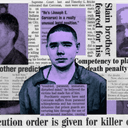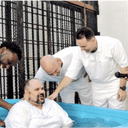
Signaling a strengthening of the Catholic Church’s official opposition to capital punishment, Pope Francis (pictured) marked the 25th anniversary of the Catholic Church’s promulgation of amendments to its Catechism by declaring the death penalty “contrary to the Gospel” and “an inhumane measure that, regardless of how it is carried out, abases human dignity.” During Vatican ceremonies on October 11 commemorating the 1992 amendments, Pope Francis said that the death penalty is “inadmissible” under any circumstances and that the subject needed “a more adequate and coherent treatment” than it currently receives. The Catechism — the instructive text for Catholics around the world — currently permits “recourse to the death penalty, if this is the only possible way of effectively defending human lives against the unjust aggressor,” but given modern crime prevention and incarceration practices, its says “the cases in which the execution of the offender is an absolute necessity ‘are very rare, if not practically nonexistent.’ ” Pope Francis called capital punishment “an attack on the inviolability and the dignity of the person” and said that the approach to the issue by the Holy See has in the past been “more legalistic than Christian.” The pontiff said that Church doctrine is a “dynamic” process that “develops [and] grows” over time, and it is therefore necessary to reaffirm in the Catechism “that no matter how serious the crime that has been committed, the death penalty is inadmissible because it is an attack on the inviolability and the dignity of the person.” In October 2014, Pope Francis referred to the present Catechism in calling for the abolition of the death penalty, saying “It is impossible to imagine that states today cannot make use of another means than capital punishment to defend peoples’ lives from an unjust aggressor.” He repeated that call during an historic address before a joint session of the United States Congress in September 2015, and urged Catholic leaders around the world to take action to halt all executions during the Church’s “Holy Year of Mercy” in 2016. Archbishop Emeritus Joseph Fiorenza — a former president of the U.S. Conference of Catholic Bishops — said the pope’s remarks have “put to rest” any doubt as to whether the death penalty is permitted under Catholic doctrine. “This is Pope Francis’ magisterial teaching on this issue and as the faithful we have the responsibility to accept what the pope says,” said Fiorenza. Dianne Rust-Tierney, the executive director of the National Coalition to Abolish the Death Penalty, said that the pope’s “moral clarity and leadership” are promising to proponents of abolition. “We’ve got to show people that there is a better way, that this is a fundamentally immoral practice,” she said. The pope’s revision “closes the loophole” that the Catechism had left open in the minds of some, according to Karen Clifton, executive director of the Catholic Mobilizing Network. “[H]e makes it very clear,” said Clifton, that Catholics “need to meet people where they are and move them toward mercy and away from vengeance.”
(N. Winfield, “Pope: Catholic guide needs updating on death penalty issue,” Associated Press, October 11, 2017; K. Clarke, “Advocates for death penalty abolition encouraged by Pope Francis statement,” America Magazine, October 16, 2017; “Pope Francis: The dynamic word of God cannot be moth-balled,” Vatican Radio, October 11, 2017.) Read the English language translation of Pope Francis’s prepared remarks here. See Religion.
(N. Winfield, “Pope: Catholic guide needs updating on death penalty issue,” Associated Press, October 11, 2017; K. Clarke, “Advocates for death penalty abolition encouraged by Pope Francis statement,”
America Magazine, October 16, 2017; “Pope Francis: The dynamic word of God cannot be moth-balled,” Vatican Radio, October 11, 2017.)
Read the English language translation of Pope Francis’s prepared remarks here. See Religion.



